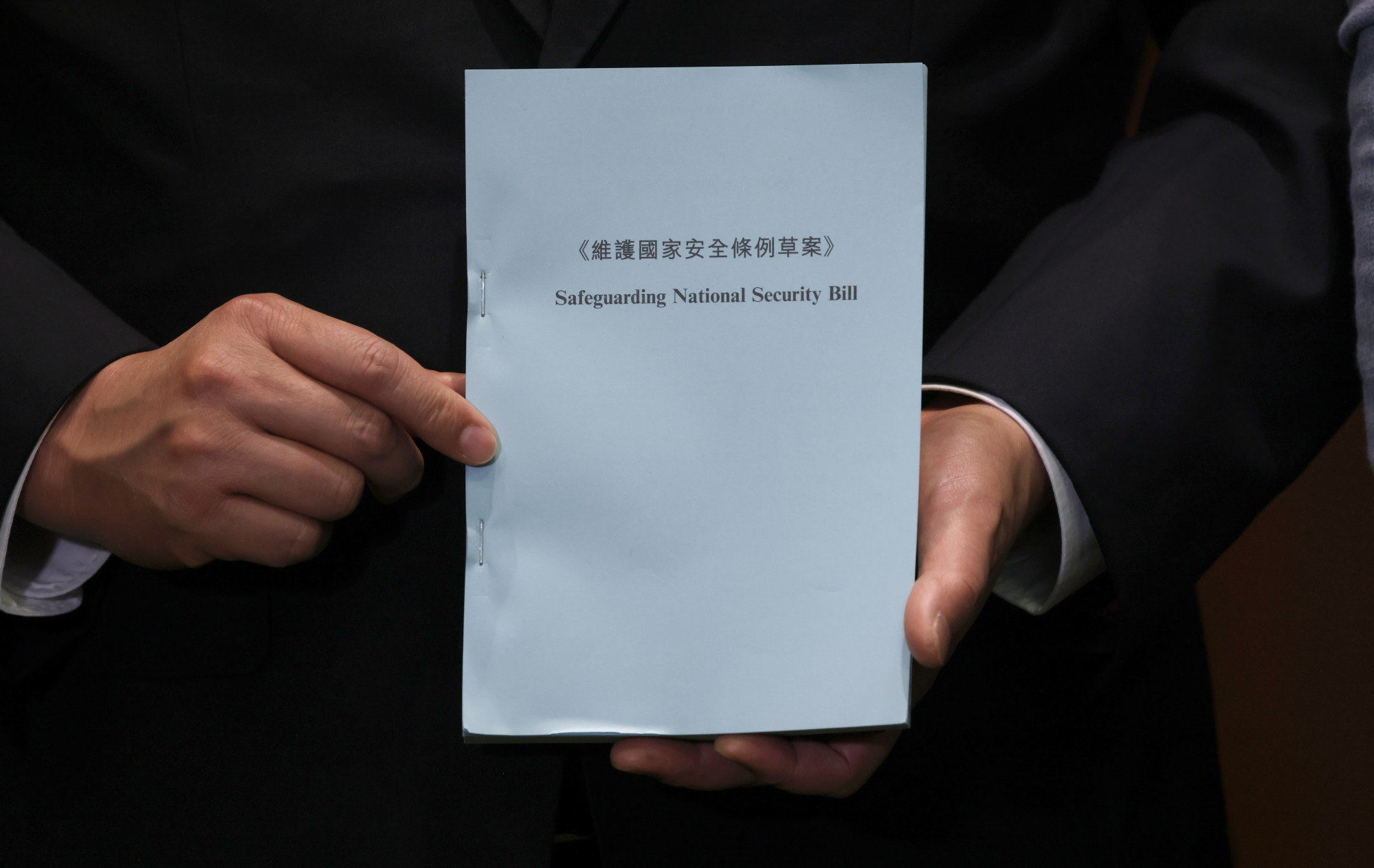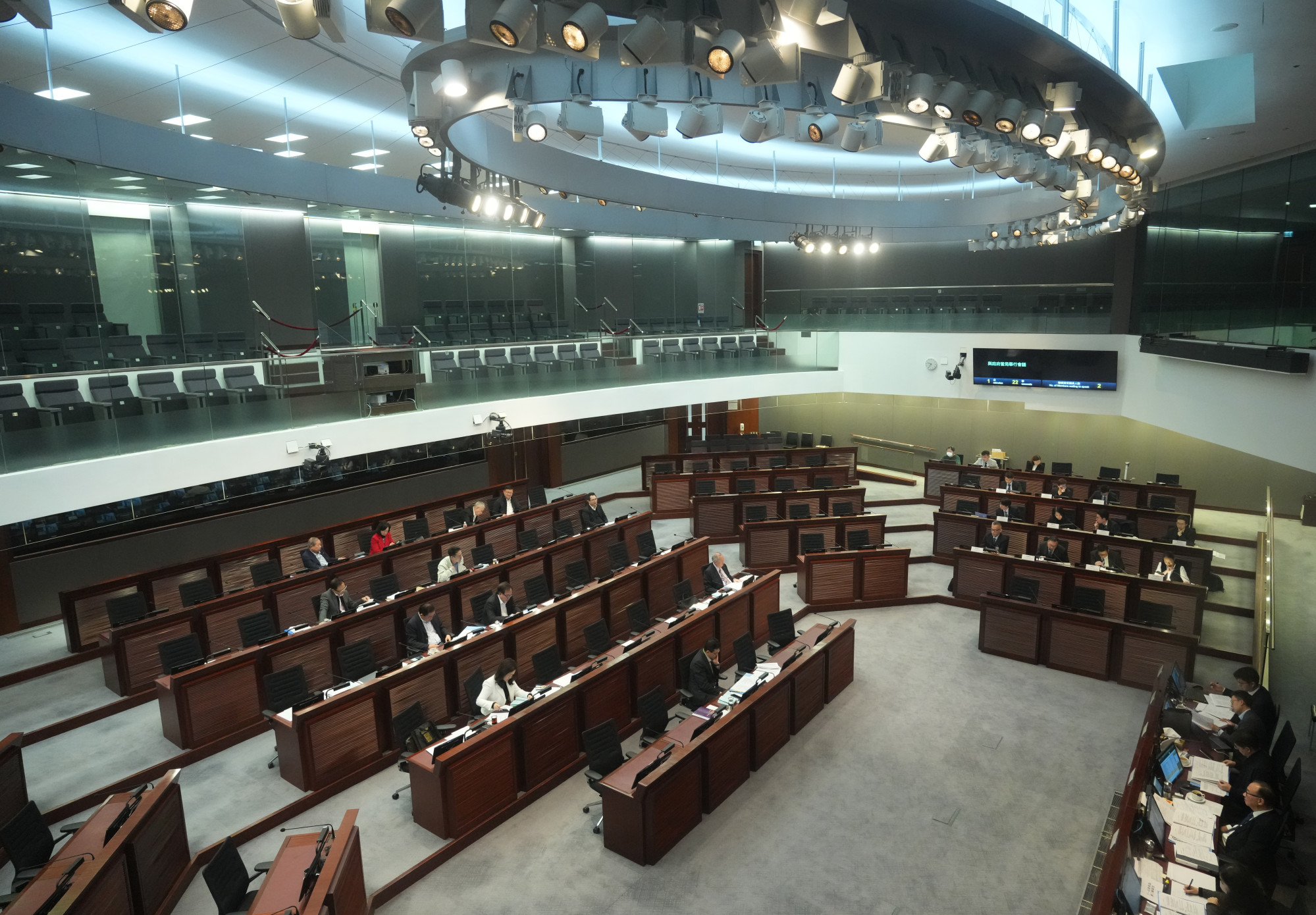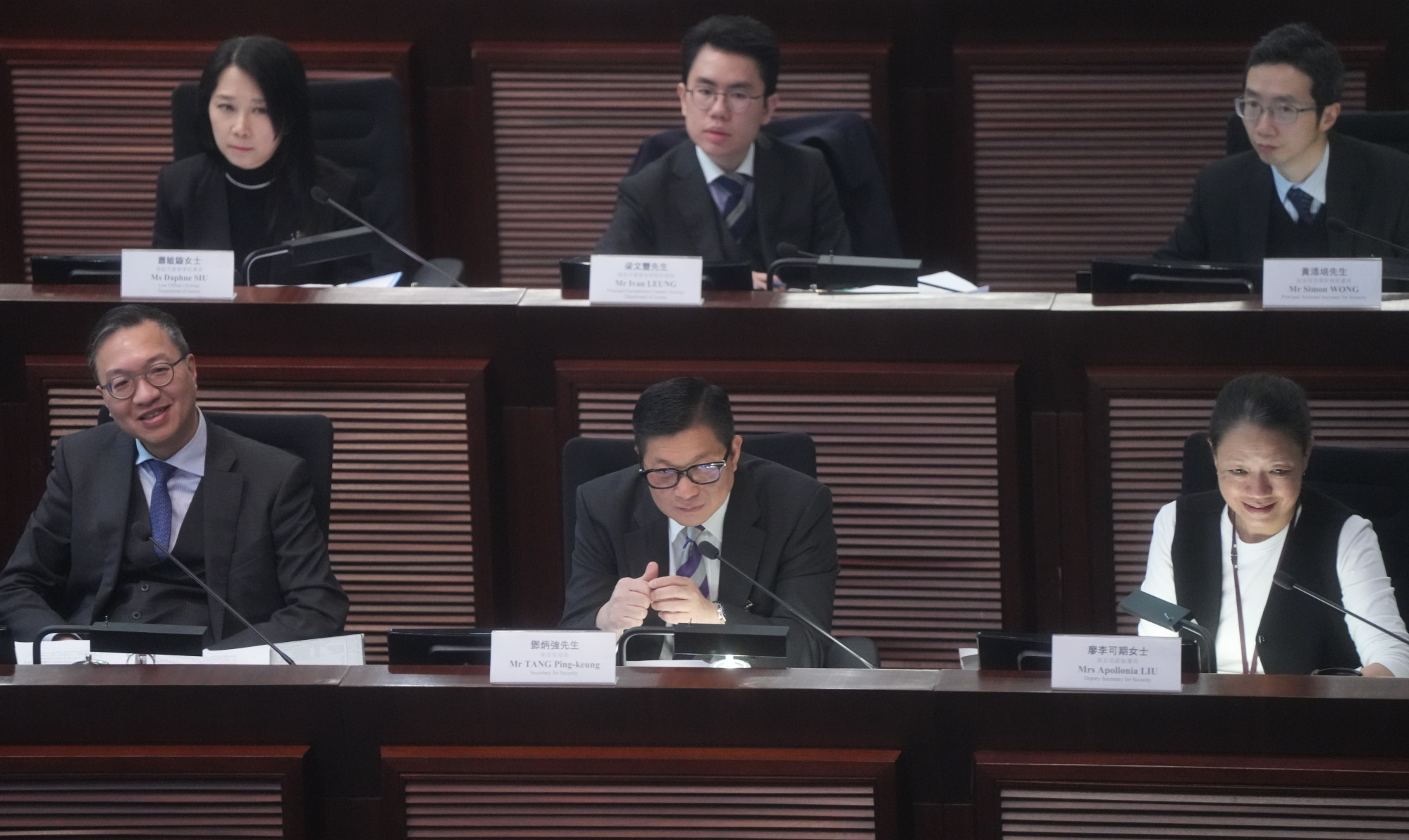Hong Kong’s domestic security bill: day 3 of marathon discussion of home-grown legislation covers state secrets, espionage and sabotage
At least 40 per cent – 73 out of 181 clauses – of Hong Kong’s home-grown national security law had gone through scrutiny by lawmakers by Sunday, after it was gazetted and sped through its first and second readings in the legislature two days ago.
Legislators have already spent 20 hours in the bills committee’s marathon meetings so far, and other panel meetings will give way on Monday so that the whole day discussion on the Safeguarding National Security Bill can be continued.
The Post continues to follow the scrutiny of the 212-page bill mandated under Article 23 the Basic Law, the city’s mini-constitution and lays down what has been discussed in the Legislative Council as lawmakers go through it clause by clause.

March 10
State secrets
Paul Lam Ting-kwok, the justice secretary, said:
On the offence of “unlawful disclosure of information etc that appears to be confidential matter”:
The clause targets public officers or government contractors “giving out false information” intended to endanger national security.
Public officers have credibility, and people will think the fake information is true, which would cause social instability.
But criminal liability would also depend on whether the information would prejudice the interests of the central authorities or the Hong Kong government.
Hong Kong public officers sharing fake secrets ‘may fall foul of security law’
Hong Kong public officers sharing fake secrets ‘may fall foul of security law’
On whether a public officer will be held responsible if someone falsely claims that the government will distribute a cash handout in its budget:
Lam said it did not involve endangering national security but officers should not lie and could be brought up on misconduct allegations.
On the clause of “safeguarding of information”:
He said public officers or government contractors could break the law if they did not follow the government’s security regulations or contracts for keeping its documents.
Those who have lost a government USB and leaked its password can be held criminally liable for the offence.
Claiming to be too old and forgetful will not be a defence, but they could be grounds for mitigation, depending on circumstances.

Espionage
Authorities said there were cases that involved collusion with external forces using false information to mislead the public and endanger national security and authorities had to stop them from happening and set the record straight.
Whether someone enters, passes by or takes pictures of prohibited places will breach the proposed law.
Chris Tang Ping-keung, the security secretary, said they would not be criminally liable if they did not intend to endanger national security.
It is illegal to trespass in a military restricted zone but passers-by would not contravene the local national security law without having the intention to do so.
Authorities could, depending on the circumstances, first give a warning before they took legal action.
On the definition of “prohibited places”:
The Chief Executive would be able to declare private land a prohibited area if under contract to the city government, but that would not mean it had taken back ownership of the site.
The clause also covers the “neighbourhood” around prohibited areas because advanced technology can obtain sensitive information from a distance.
As it happened: Hong Kong security bill readings advance, meetings set for weekend
As it happened: Hong Kong security bill readings advance, meetings set for weekend
On the clause of “participating in or supporting external intelligence organisations, or accepting advantages offered by them, etc”:
It will cover different kinds of assets, including virtual ones.
Authorities will not release a list of bodies classed as external intelligence organisations as some are well-known and some are not. But the Chief Executive can declare an entity as one if needed.
Think tanks are generally not considered external intelligence organisations.
Residents will not be held liable if they are unaware they are interacting with someone from an external intelligence organisation.
Sabotage endangering national security
On the definition of “public infrastructure”:
Whether it includes financial facilities and systems, such as combating calls for banning global financial messaging provider Swift in Hong Kong, authorities said the current definition had flexibility and would be reviewed.

External interference
Tang said someone could only commit an offence if their action fulfilled three elements – collaboration with an external force, had the intention to bring about interference, and use of improper means.
Authorities said normal commercial and academic activities between Hong Kong and overseas would not fall under the offence.
He outlined examples of collaboration with foreign entities which would not be considered to have contravened the law as long as it does not include the other two components:
City chambers of commerce and corporations seeking foreign companies’ expertise and raising their opinion to the government.
Hong Kong think tanks collaborating with foreign ones with former or existing government officials as their management, or in receipt financial subsidies.
Research by NGOs on sensitive topics such as human rights, freedom and the environment.
Hong Kong will forge ahead with plans to pass Article 23: justice secretary
Hong Kong will forge ahead with plans to pass Article 23: justice secretary
Detention period
Lam said a police officer would only be able to apply to extend the detention period of people arrested in connection with investigations under the Hong Kong national security law if necessary, but that the courts would decide whether that was appropriate.
He added that would be fairer to the individuals concerned and avoid obstruction of the investigation.
Read the Post’s Saturday coverage here.


